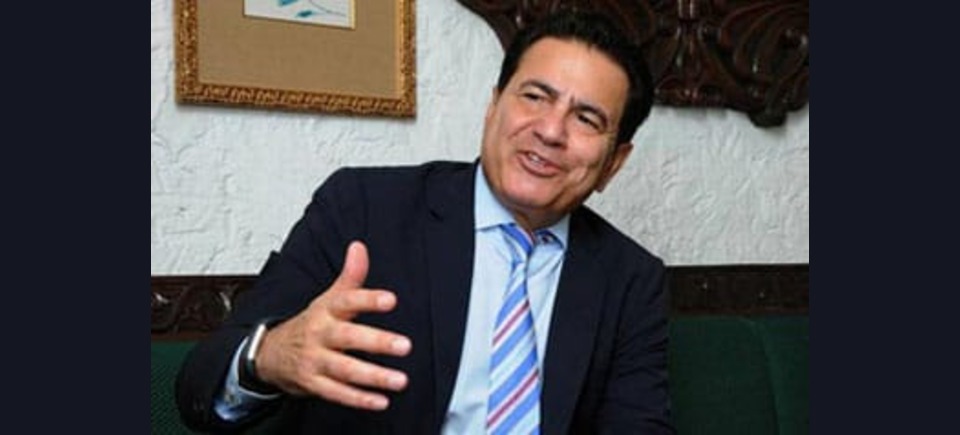Modi government must become more transparent in policy-making and open for business, says Mukesh Aghi
The Biden administration’s moves to pull out troops from Afghanistan and Iraq mean there will be more American focus on dealing with China, and India could benefit from U.S. investment that is leaving China if the Modi government becomes more transparent in policy-making and “open for business”, said Indo-U.S. trade body chief Mukesh Aghi. However, he said there isn’t as much interest in concluding an Indo-US Free Trade Agreement as there was during the Trump administration and India must also put aside its hopes of having its “GSP status” restored, which was cancelled in 2019. Both sides must work on more deliverable goals.
“If [India] makes GSP a central issue, and the U.S. side makes human rights, labour rights a central issue, then it’s a non-starter. Look at other bigger challenges we have,” Mr. Aghi, President and CEO of the Washington-based US India Strategic Partnership Forum (USISPF) told The Hindu in an interview.
Fast rising exports
Last week, Commerce Minister Piyush Goyal had said in a speech the U.S. had indicated it was “not looking” for a new trade agreement, but wanted to work on improving market access issues that have become a sore point. However, despite the cancellation of India’s GSP status, exports to the U.S. are the fastest rising than to any other country, indicating the GSP status, which New Delhi has been pushing for, may not have affected demand.
Mr. Aghi was in Delhi for meetings with several Ministers including Mr. Goyal, External Affairs Minister S. Jaishankar who is a “Board Member Emeritus” of the USISPF, as well as Ministers of Information Technology (MEiTY), Civil Aviation, Sports, Health and Education ahead of a planned visit by Prime Minister Narendra Modi to the United States in a few weeks.
The USISPF has invited Mr. Modi to address a special annual meeting of its members in Washington, where President Biden is expected to hold the first in-person ‘Quad’ summit with the leaders of India, Australia and Japan.
Quad to discuss economic cooperation
The summit, which is yet to be confirmed by all the leaders, is likely to be held on September 26-27, a day after PM Modi delivers an address to the U.N. General Assembly. The four countries are likely to discuss economic cooperation on issues like critical and emerging technology, countering climate change and a COVID-19 vaccine partnership that they had set up working groups about during the last meeting in March. The meeting will also be significant as it would come shortly after the U.S. completes its pull-out from Afghanistan.
“I think pulling out from Afghanistan and Iraq will give resources to the strategists in the U.S. side and they will start looking at putting resources on dealing with China. So I think you will see Quad getting more stronger from that perspective, with more focus. And hopefully, it will go beyond the geopolitical to looking at the economic agenda,” Mr. Aghi said.
Mr. Aghi also said with India-China tensions growing and the Modi government blocking Chinese FDI (foreign direct investment) proposals, India will need to depend on other countries like the U.S. to realise the PM’s hopes of a “5-trillion dollar economy”, as well as a possible economic trade agreement on the lines of the “Trans-Pacific Partnership.”
“India needs $100 billion a year investment, if it wants to be a $5-trillion economy. So it has to communicate better to the world that, hey, we are open for business, while at the same time, we’re trying to become self-reliant. We’re trying to bring in more secure supply chains and reduce our dependence on China,” Mr. Aghi said.
Communication problem
Mr. Aghi said India still has a “communication problem” among U.S. businesses, as it is not seen as investor-friendly on issues like consultative policy making; legal protections like the indemnity issue holding up the import of U.S.-made vaccines and arbitration and dispute resolution, referring to the Cairn Energy dispute which won a $1.2-billion settlement against the Indian government, which is yet to be resolved.
“The USISPF publicly applauded the government’s withdrawal of retrospective taxes… [but] dispute resolution is a critical part of any large investment coming into the country. And it’s important that India sends a message that if you agree to arbitration, or if you agree to International Court of Justices, that it will be honoured whatever the decision is,” Mr. Aghi said.
More information
https://www.thehindu.com/news/national/india-could-benefit-from-us-investment-that-is-leaving-china-says-trade-body-chief/article36165446.ece


